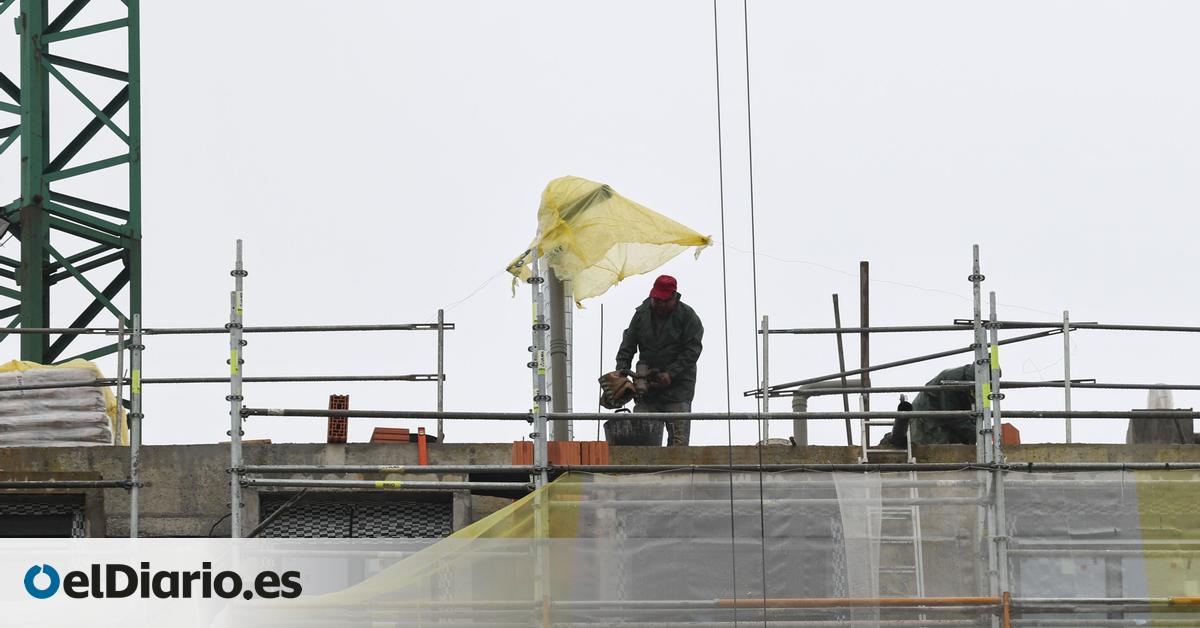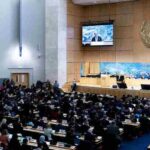
The Government had a plan to build up to 15,000 affordable rental homes. Sareb would put the soils for 80 years and the capital would raise and manage buildings with limited profitability. Then, the buildings would reverse the public. But that public-private collaboration sought by the Executive failed. The tender, which has already been delayed on the planned calendar, was deserted in January. More than two months later and with the residential emergency, the Ministries of Economy and Housing continue to analyze what failed and if it is possible to redefine that Vienna project, one of the legs with which they intended to reinforce the public housing park.
Last week, the General Board of Shareholders of Sareb agreed to paralyze “temporarily the marketing and sale of all real estate assets that can be part of the state park of affordable and social rental housing”, according to the communication sent to the National Securities Market Commission. The objective, indicates the note, is to work “in coordination with SEPES (the state public land entity) and with the competent ministerial departments” to find “alternatives that allow Sareb to collaborate in the generation of the State Park of Social or Askemable Rental Housing.”
Thus, all soils or residential assets likely to be part of that public park, currently in the property of Sareb, are paralyzing at least until June 30 waiting to be analyzed again. This decision comes after the announcement of the President of the Government, Pedro Sánchez, that the bad bank would transfer these assets to the SEPES, on which the new public housing company in which the Ministry of Isabel Rodríguez works. Precisely, Sánchez announced this intention on January 13, a week before the tender of the Vienna project that was deserted was closed.
The project, approved in July 2024 by the Board of Directors of Sareb, known as ‘Banco Malo’, would allow the construction of more than 10,600 homes on the soils of the entity. The figure could be extended to 15,000 homes but, eight months later, it is not compromised or a brick. Vienna is part of the housing plan for affordable rent (PVAA) approved by the Government within the commitment of President Pedro Sánchez for the mobilization of more than 184,000 homes at the price below the market.
“After the tender is deserted, Sareb initiated a round of contacts with investors to analyze the causes and try to relaunch the project in the future,” indicate sources of the entity. Although that future has no date, this society, under the Ministry of Economy, if you have identified some of the “pitfalls” for the implementation of the plan: “the structure with which the geographical lots had been designed, incorporating located located in different municipalities and mixing different autonomous communities.”
In a first part of the failed project, Sareb had tendered 50 soils in 39 municipalities, grouped into seven lots, in which 3,770 homes could be built. “Investors prefer more concrete locations, since there are certain areas that do not arouse so much interest,” they admit from the entity, which they had previously contacted with possible interested in participating in the project, both in Spain and in London. In addition, they had commissioned the PWC consultant with a study on the hypothetical profitability of the project, around 7%.
Where was the problem? The Sareb was created in 2012 to assume the toxic assets of the banks after the financial crisis, with the aim of getting rid of them and recovering a part of the Milmillonario Bank rescue with public money. “What remains as a building free of building after 13 years are small solar, quite residual and in diverse places,” says the vocal secretary of the Association of Construction Promoters of Spain (Apcespaña), Josep Donés. That is, the good is already placed.
The project was mainly focused on the search for investors, which financed the nearly 480 million euros planned for the first phase, for which Sareb held meetings with a hundred national and international actors. “In this type of public-private collaborations, capital comes from what we call corewho wants to obtain very little profitability but with a very safe business, ”says the general director of the Association of Real Estate Promoters of Madrid (Asprima), Jorge Ginés. And that security is what, in his opinion, failed in the plan.
“To have a profitability at 80 years, you have to guarantee an occupation above 95% and a delinquency aimed at zero. These are the requirements that the Vienna project did not meet, because the soils are not where people want to live, so you are not guaranteed that you are going to fill it, and they are areas of low per capita income, so it also does not guarantee the rent,” says Ginés. “This was The voice of the people in the sector and had told Sareb from the first moment. The sheet was badly given from the beginning by that type of investor to which it was directed that, for an operational issue and management efficiency, seeks the greatest concentration, ”he adds.
This formula, that of concentration, also shares Donés. “Sareb has always gone in the line of working at the local level. If you go to a small town and you have a lot, local promoters are going to go,” he proposes.
While the new Vienna project is resolved and concrete, about what some sources close to SAREB clarify that there is will, the Ministry of Housing has managed to increase the percentage of public homes that, although it represents only 3.3% of the total, according to the data of the Housing Social Observatory, it has grown from 2.5%. In addition, Minister Rodríguez said Wednesday during an intervention in Congress that the household effort indicator to the rental of the rent has been reduced 13 points in three years and is now in the lowest figure since 2013. In total, according to Eurostat data, 28.1% of households allocates more than 40% of their income to the payment of the rent.
Source: www.eldiario.es

